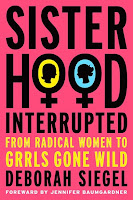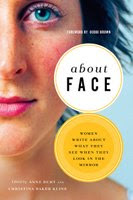 Just two quick hits about women as op-ed writers and women as sociologists (how’s that for a connection?!) before I really sign off:
Just two quick hits about women as op-ed writers and women as sociologists (how’s that for a connection?!) before I really sign off:
1. San Francisco Gate: The Opinion Pages: Mostly A Man’s World
When it comes to the opinion pages of some of the most influential American newspapers, it’s far too often a man’s world. One reason for the disparity is obvious: Women are still breaking through glass ceilings in business, government and academia.
2. Inside Higher Ed: Women in Sociology – Satisfied, but Not Equal
Women in sociology, 10 years after earning their Ph.D.’s, are achieving substantial professional success and high levels of research productivity, but also differ from men in some ways in their career trajectories, according to a new study released by the American Sociological Association.
Among the key findings:
-Male sociologists in the cohort were more likely than female sociologists to be married or living with a partner (83 percent vs. 68 percent), or to have children living with them (62 percent to 50 percent).
-Among sociologists who are parents, women are much more likely to be divorced (21 percent vs. 1.4 percent). Roberta Spalter-Roth, director of research at the sociology association and one of the report’s authors, said one reason for this was that many more women than men come to graduate school as single parents, having already been married and divorced.
-Many sociologists who do have children do so before their tenure reviews, with the largest group having a first child 3-4 years after earning a doctorate.
-Parenthood does not appear to limit research productivity, at least as measured by the number of articles published in refereed journals — a key measure for the discipline. Mothers and fathers reported an average of 10.0 refereed journal articles since they earned their doctorates, while childless men and women reported an average of 9.5.
-Mothers appeared, on average, to earn less than others in the cohort. The income question was asked with categories, not exact amounts. The median income for sociologists who are fathers, and for sociologists who don’t have children, was between $70,000 and $99,000. The median income for sociologists who are mothers was between $50,000 and $59,000.
-On many issues, mothers and fathers both reported high levels of stress related to advancing their careers while also caring for their families. Child care, the tenure process, and teaching loads were key issues for parents.
(Go Katie O and The Op-Ed Project! And thanks to Rebekah Spicuglia of the Women’s Media Center Daily News Brief for the tips.)










